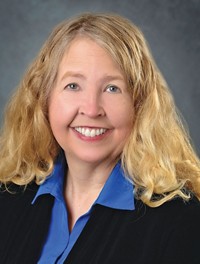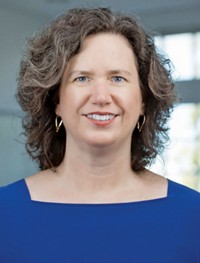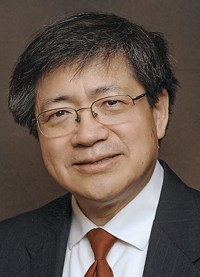Advertisement
Grab your lab coat. Let's get started
Welcome!
Welcome!
Create an account below to get 6 C&EN articles per month, receive newsletters and more - all free.
It seems this is your first time logging in online. Please enter the following information to continue.
As an ACS member you automatically get access to this site. All we need is few more details to create your reading experience.
Not you? Sign in with a different account.
Not you? Sign in with a different account.
ERROR 1
ERROR 1
ERROR 2
ERROR 2
ERROR 2
ERROR 2
ERROR 2
Password and Confirm password must match.
If you have an ACS member number, please enter it here so we can link this account to your membership. (optional)
ERROR 2
ACS values your privacy. By submitting your information, you are gaining access to C&EN and subscribing to our weekly newsletter. We use the information you provide to make your reading experience better, and we will never sell your data to third party members.
Elections
For District V director: Joseph A. Heppert
by Joseph A. Heppert
September 10, 2021
| A version of this story appeared in
Volume 99, Issue 33

Wakarusa Valley Section. Texas Tech University, Lubbock, Texas.
Academic record: San José State University, BS, chemistry, 1978; University of Wisconsin, PhD, chemistry 1982; Indiana University, postdoctoral fellow, 1985.
Honors: ACS Fellow 2012; University of Kansas Leading Light Award, 2012; Vice Chancellor’s Fellow, 2002; University of Kansas Center for Teaching Excellence Graduate Teaching Award, 1998; Keeler Intra-University Professor, 1998.
Professional positions (for past 10 years): Texas Tech University, vice president for research 2017–; University of Kansas, associate vice chancellor for research, 2009–17; chemistry chair, 2005–09; professor 2001–17; University of Kansas Center for Science Education, director, 2001–09.
Service in ACS national offices: Board of Trustees for the Group Insurance Plans, 2020–22; Committee on Budget and Finance, 2013–21, chair, 2017–19, vice chair, 2014–16, committee associate, 2011–12; Committee on Education, 2002–10, chair, 2004–06, committee associate, 2000–01; ACS Chemistry Teacher Education Coalition National Advisory Board, 2011–14; Governance Review Team A, 2007; ACS Program Review Advisory Group 2005–06; Task Forces on Program Valuation and Metrics, 2013–14; ACS Joint Board President’s Task Force on Education, 2009–10; ACS President’s Task Force on Competitiveness, 2007–08.
Service in ACS offices: Wakarusa Valley Section (formerly University of Kansas Section): councilor, 1997–2020; alternate councilor, 1994–96; chair, 2004, 1993; chair-elect, 2003, 1992; treasurer, 1991; Midwest Regional Meeting, general meeting cochair, 2017, program chair, 2002; Financial Planning Conference, co-organizer, 2017, participant, 2011.
Member: Member of ACS since 1979. Sigma Xi; American Association for the Advancement of Science; National Science Teachers Association. ACS Divisions: Chemical Education, Inorganic Chemistry, Organic Chemistry, and Small Chemical Businesses.
Related activities: Institutional Advisory Board, representative, Cancer Prevention and Research Institute of Texas, 2020–; Board of Directors, member and council vice chair, Oak Ridge Associated Universities, 2021–; Senator Pat Roberts Advisory Committee Science, Technology and the Future, participant; University of Kansas’s Center for Science Education, past director; University of Kansas faculty and University Senate Executive Committees, past chair; National Science Foundation Center for Environmentally Beneficial Catalysis, Education Center, director; The Advanced Academy of Georgia, past member, Board of Directors; University of Kansas Medical Center, Institute for Advancing Medical Innovation, Advisory Board member, 2015–17.
Heppert’s statement
It is a great honor to be nominated as a candidate for the ACS Board of Directors representing District V. This honor is heightened by the accomplishments of my competitor who has devoted many years of service and leadership to the society and the profession.
All chemists can be proud of the work we accomplish through ACS. ACS is acknowledged as one of the world’s leading professional scientific societies. Our ACS benefits include access to scholarly information, education, professional activities, employment and fellowship with likeminded chemical scientists. The society has historically done a remarkable job of responding to the needs of the chemical profession. While I firmly believe we need to continue to faithfully serve the needs of existing members, ACS also must evolve to become even more effective at attracting, training, and retaining new generations of chemical scientists.
Over the past 75 years, the international chemical industry, led by US chemical innovation, has ushered the world into a healthier, more prosperous, and more environmentally conscious era. Chemical industries have long been a key strength of the US economy. The erosion of this mainstay of economic prosperity accounts for many of our concerns about sustaining membership in ACS, maintaining the vitality of domestic chemical businesses, and preserving the economic standing of our nation in the global community. ACS members know that chemical innovation must continue to play a central role in driving US competitiveness; therefore, we must continue to advocate for government and private-sector support for chemical research and entrepreneurship.
Degrees in chemistry provide an excellent foundation for career paths in chemical sciences, as well as in business, teaching, and government service. ACS needs to ensure that graduate and undergraduate students are prepared for the rapidly changing environment of high-technology employment. With the increasing cross-disciplinary nature of the workforce, chemists need tools and experiences that equip them to collaborate with professionals in other disciplines. Undergraduate students need expanded access to cutting-edge research at chemistry’s disciplinary interfaces. Furthermore, all students should have the opportunity to explore complementary scientific career paths, including work in public policy formation, and experiences in innovation and entrepreneurship.
At this point in our nation’s history, it is essential that ACS become an even more ardent advocate for, and leader in, increasing the diversity of the scientific workforce, and increasing inclusivity and equity in our scientific and professional institutions. ACS programs—including Project Seed, ACS Scholars, and local section outreach—are working to increase the diversity of student populations studying in science, technology, engineering and mathematics fields. We must redouble our efforts in these areas. The society can play an increased role in advocating for federal, state, and local programs to enhance STEM education and outreach, bringing the wonder of the chemical sciences to all students in our nation. This goal is an unfulfilled dream, initiated, in part, by the recommendations of two major National Academy Commission reports during the 2000s. It is essential that the ACS advocate for major federal, private sector, and philanthropic investment to put the nation back on track to fulfill this vision.
We have also witnessed a continuing worldwide trend to discount the role of scientific knowledge in the creation of sound national policy and the identification of foci for international cooperation. This trend has led to policy formation that has profound impacts on global health and quality of life, the vitality of the world economy, and the security of our nation. As our society always has, we must be a consistent voice for the consideration of factual scientific information as a basis for establishing national priorities. We, as ACS members, must also speak out for the long-term national investments in scientific and technological education, research and development, and technology-based industries that are required to secure sustained access to high-paying jobs, economic opportunity, environmental sustainability, and national security.
ACS remains the world’s premier source of chemical-science knowledge, an important value proposition for our membership. Recent changes in ACS publications and information services have been very popular among academic and industry client bases. As the society considers strategies for retaining younger scientists, we need to examine how young scientists access and consume scientific information, and adapt our programs to support this critical segment of our future membership.
If elected a director from District V, I will work with ACS members and the Board to support society policies, practices, and programs and address these and other questions of importance to ACS members.
Candidates will not be notified of comments left on this web page. To contact this candidate directly, email: Joseph.Heppert@ttu.edu.





Join the conversation
Contact the reporter
Submit a Letter to the Editor for publication
Engage with us on Twitter